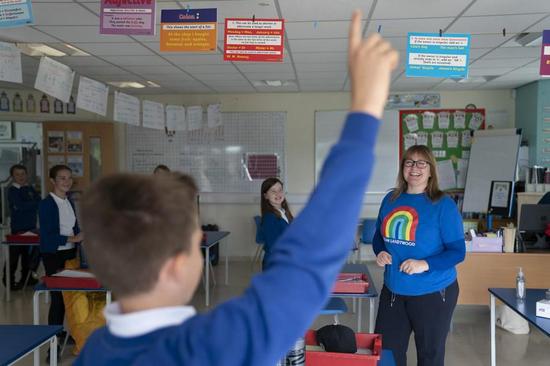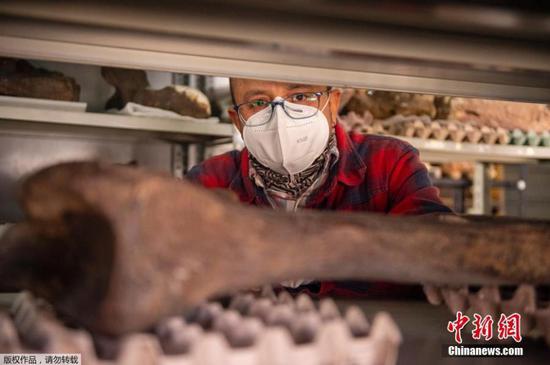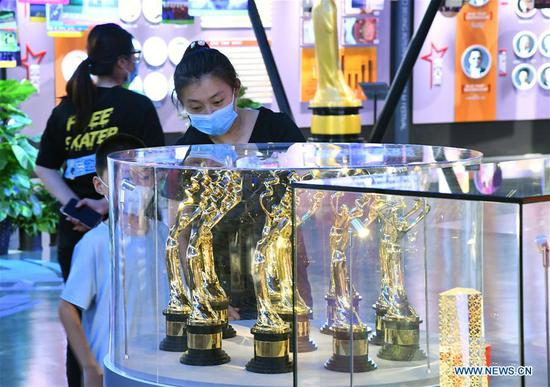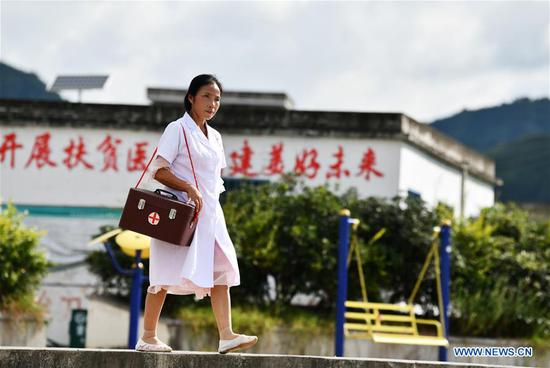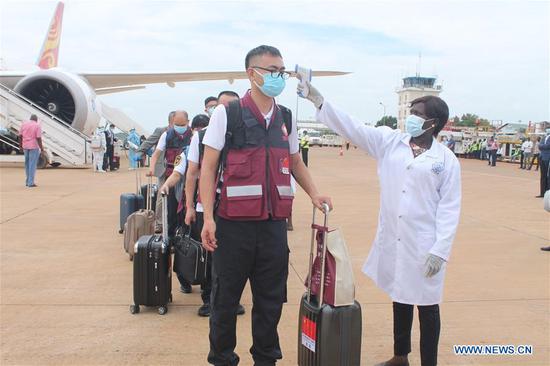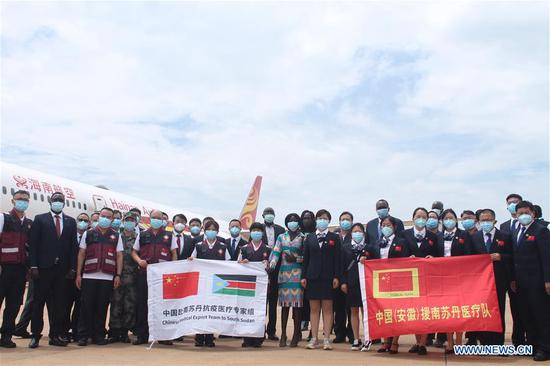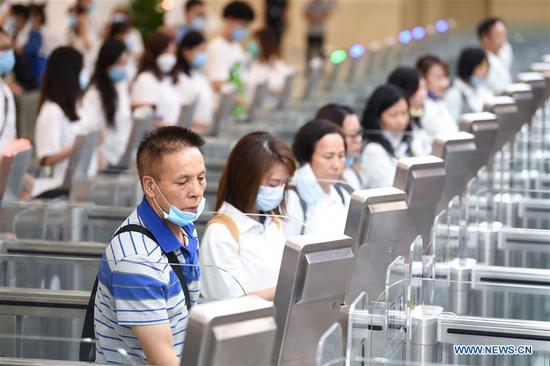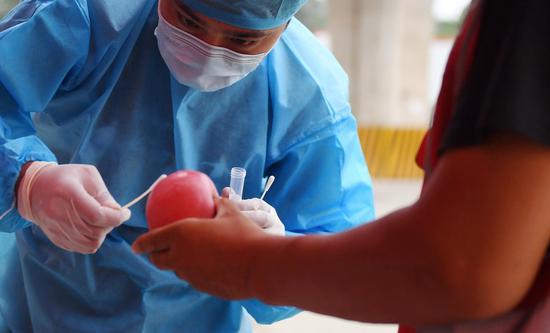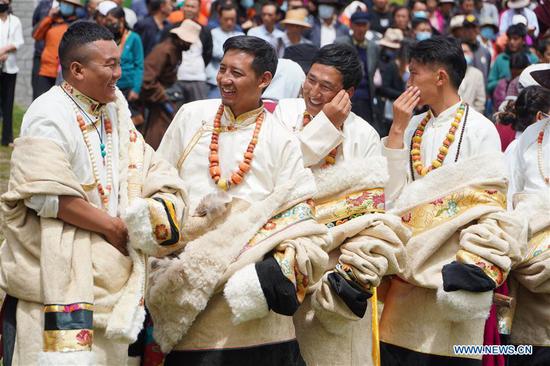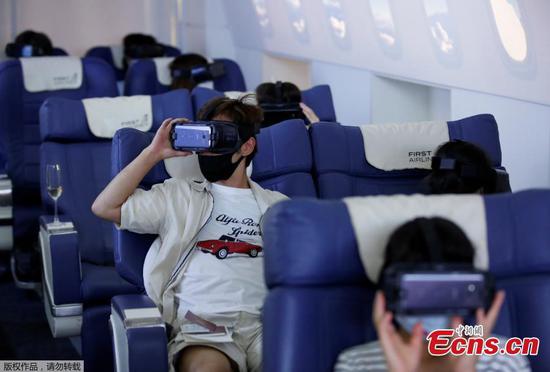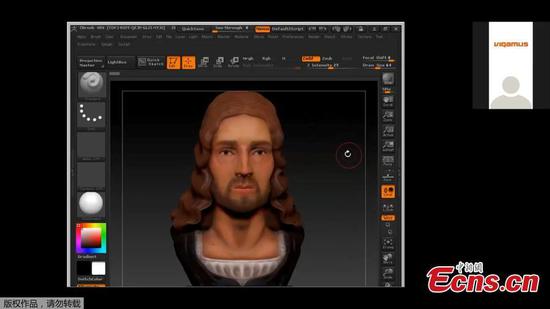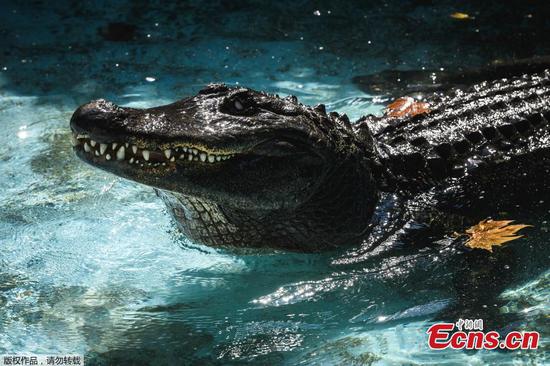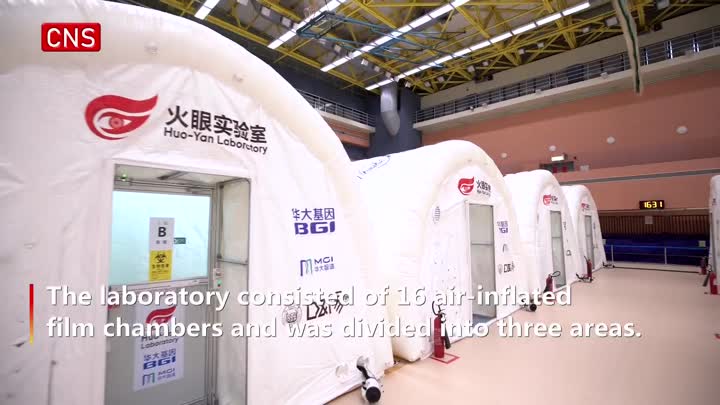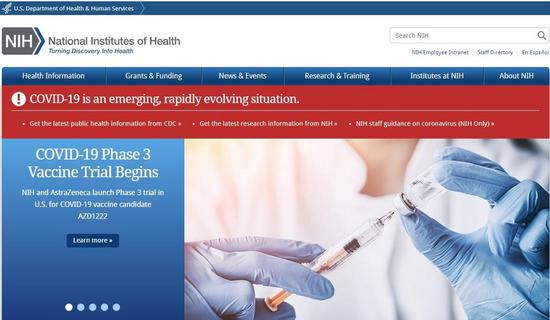
A screenshot taken from the website of the U.S. National Institutes of Health (NIH) on Sept. 1, 2020 shows the title and photo of its latest publication "COVID-19 Phase 3 Vaccine Trial Begins." (Xinhua)
Researchers across the United States are stepping up efforts to work out an effective COVID-19 vaccine as another vaccine candidate has started phase 3 clinical trial on Monday.
The multi-site clinical trial evaluating an investigational COVID-19 vaccine, known as AZD1222, will enroll approximately 30,000 adult volunteers at 80 sites in the United States to evaluate if the candidate vaccine can prevent COVID-19, said the U.S. National Institutes of Health (NIH).
Participants will be randomly assigned to the investigational vaccine group or the placebo group, and neither the investigators nor the participants will know who is assigned to which group.
After an initial screening, participants will receive two injections of either the investigational vaccine or a saline placebo approximately four weeks apart.
One person will receive a placebo injection for every two people who receive AZD1222, which will result in approximately 20,000 people receiving the investigational vaccine and 10,000 people receiving a placebo.
The trial primarily is designed to determine if AZD1222 can prevent symptomatic COVID-19 after two doses.
The trial also will evaluate if the vaccine candidate can prevent SARS-CoV-2 infection regardless of symptoms and if it can prevent severe COVID-19. It also will assess if the experimental vaccine can reduce the incidence of emergency department visits due to COVID-19, according to the NIH.
The United Kingdom-based global biopharmaceutical company AstraZeneca is leading the trial as regulatory sponsor. The National Institute of Allergy and Infectious Diseases (NIAID), part of the NIH, and the Biomedical Advanced Research and Development Authority are providing funding support for the trial.
The vaccine candidate uses a non-replicating chimpanzee adenovirus to deliver a SARS-CoV-2 spike protein to induce an immune response, said the NIH.
"Safe and effective vaccines will be essential to meet the global need for widespread protection against COVID-19," said NIAID Director Anthony Fauci.
"Positive results from preclinical research led by NIH scientists supported the rapid development of this vaccine candidate, which has also showed promise in early-stage clinical trials," he said.
The United States has been stepping up research on vaccines, drugs and therapies for COVID-19 as confirmed cases hit over 6,062,000 and fatalities surpassed 184,200 as of Tuesday afternoon, according to a tally by Johns Hopkins University.
Last month, the NIH announced the start of a randomized, controlled clinical trial evaluating the safety and efficacy of a treatment regimen consisting of the antiviral remdesivir plus the immunomodulator interferon beta-1a in COVID-19 patients.
The trial was anticipated to enroll more than 1,000 hospitalized adults with COVID-19 at as many as 100 sites in the United States and abroad.
Another experimental COVID-19 vaccine being developed by the NIAID and American biotechnology company Moderna, known as mRNA-1273, started phase 3 clinical trial in late July to evaluate if it can prevent COVID-19 in adults.
The trial, scheduled to be conducted at U.S. clinical research sites, was expected to enroll approximately 30,000 adult volunteers who do not have COVID-19.











